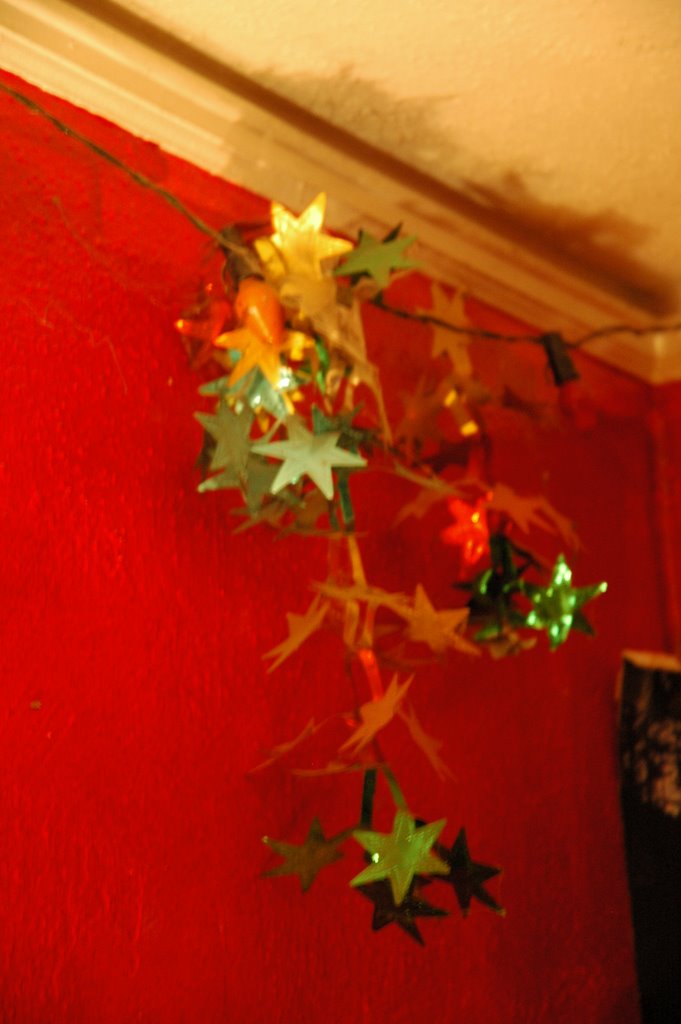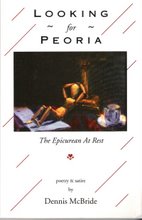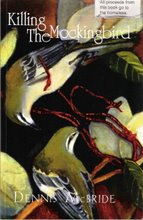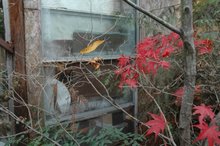Not Being Buddha
1. The small boy in the store just took it,
the little plastic yellow gun.
He took it when the want turned to need
like the wave and particle when they change uniform.
The cashier saw it, she turned him in--
not because there was a need
but because that place where the look in her eyes came from
wanted to, to tell her boss, point the finger, say “Jew.”
2. I first saw it soft at seven in forty-nine.
It came to the kitchen table on Broadway,
the one with the red plaid tablecloth
where I’d eaten every dinner I’d ever known.
My mother brought it to me that night,
put the pancakes and eggs on my plate.
Something unnatural unleashed in the air.
The breakfast I would not eat did not belong.
Why did mother do that,
saying,“This is dinner tonight,”
make the night not right,
turn the world strange in my chest?
What was it?
3. It was there in daylight near the garage,
the man wearing levis, the
one with the thumb hooked over the belt,
talking to his neighbor, the other man,
working on his Plymouth axle.
The man under the car, nearest the axle,
is farthest from it and least afraid
(any old cross will do).
But the man talking to him was sent by it;
his words like yellow jackets from the hive in his stomach
want to still it, feed its hunger, quiet the thing.
They say “pipe wrench,” “three-quarter inch,”
“over to your left more,” and “five-eighths.”
What is it?
4. I saw it in the middle of night.
The black spider brought it to my bedroom,
yoga-kneed joints jetting its thick metallic center
across the dark desert under my desk.
It knew I was there, knew I was looking.
It froze in the flashlight’s gold crucifix,
died suddenly when the shoe’s heel
scattered the hair-legs into afterthoughts.
There was nothing to still it, feed it, quiet the thing.
5. But at the border crossing
we talked to each other,
the man in the booth and I.
He just wanted to see if it was near,
“Do you have any firearms,? Where are you from?
How long do you intend to stay?”
But we both had countries,
a booth in his, a car in mine.
It was stilled, fed, quieted.
6. And then this having to mate
like a nail needing wood,
asks of her nearly sacrifice,
will not wait for snow to melt.
And when it is denied again and again
the weight of sadness grows
like an avalanche
that does not threaten only
but subtracts.
7. It was the man who ran
down the steps of his house,
his furious face swelled red,
the voice shaking rage.
It had just happened.
“They battered the door in,
tore the God-damn lock off.
Sons of bitchs smashed the glass,
took the twelve-gauge,
damn near half of everything I own.
I’ll kill the bastards,
next time I’ll kill em.”
8. But see the great giant boat,
the white man’s perfect arrogant hope
moving slow through the starry dark
moving slow through the north Atlantic night
moving slow to the waiting edge of ice.
Then the jarring tear like God groaning
from the furnace in the Earth’s core
that shaped the swift terrible knowing
to form the final cast of the mind.
The unbelievable water is immense,
the great boat tips upward--
T-I-T-A-N and half of an I can be seen--
then slides down backward
fast, like a decision,
into the black ocean, and then
only the voices of the drowning dying,
rising together and utterly separate
in an immense terrible chorus,
rising and falling from the floating heads,
lifting up to the thousand silent stars,
to the small receding lifeboats
where the living are leaving.
And the heads, one by one, disappear,
the cries diminish and shrink into the growing stillness
as each slips two miles down to
settle and lie near the great giant boat,
the white man’s perfect arrogant hope
still on the quiet ocean ground.
And there were black men and women
in St. Louis, New York, Harlem,
East Chicago and Los Angeles, and they heard.
They heard the unsinkable elegant ship,
was just another sunken boat.
And when they heard, they
joined long hungry hands together;
to know finally what they had known,
but needed to know -- the white man
unable to walk on the deep water.
9. It’s the bright penny’s terrible power.
I saw it in the thin scared smiles
of small Asian immigrants
wandering dogless catless streets.
Their hungry eyes hover over
half empty stomachs like street lamps.
America is just another land mass.
The few dogs now know,
the cats always did.
10. Small, wary Australopithecus,
what in you was not made for stillness, for staying?
You gaze uncertain onto the African savanna,
your left foot still safe in the dark forest,
your hand lingering lightly on the tree limb
you’ve come finally to leave.
Why did you begin, to walk,
walk three million years
into the altar of open field,
to look up, to speak, say “Universe.”
11. It’s half that the heart was meant to stop,
half that we will not have it,
it’s the little dead girl,
drowned by mistake,
the poor man who
cries by the lake.
He loved her blond hair,
she loved to be awake.
It’s this treasured light.
It’s this I, almost sufficient,
like a source.
"Good taste is the death of art." Truman Capote

Check in at The Cirrhosis Motel with your host, freelance literary loiterer and epicure, Dennis McBride

photo by John Hogl
Friday, June 22, 2007
Subscribe to:
Post Comments (Atom)



No comments:
Post a Comment